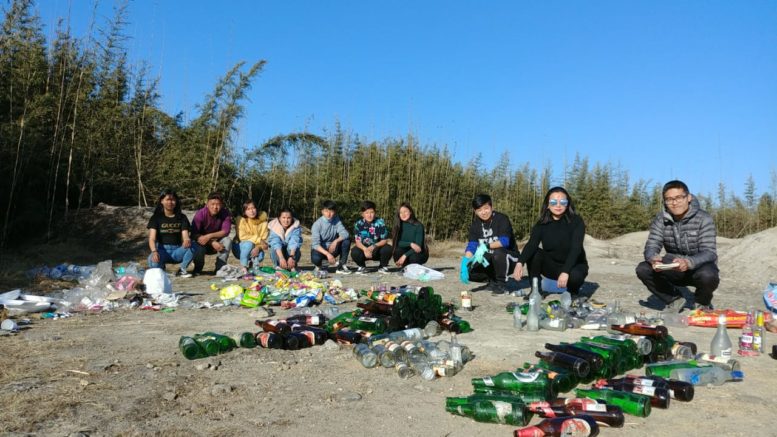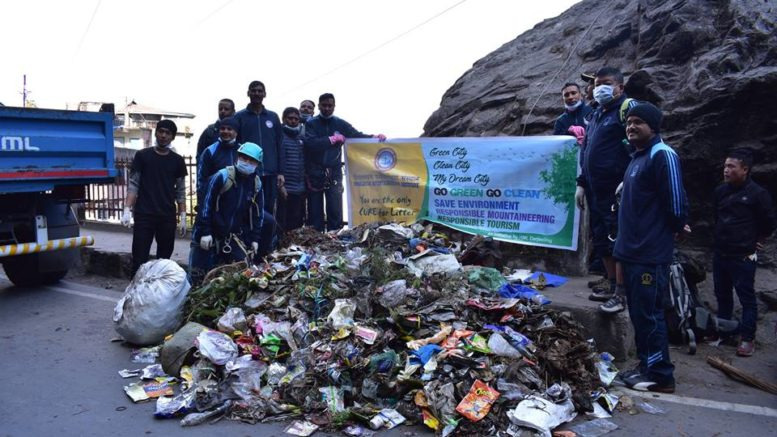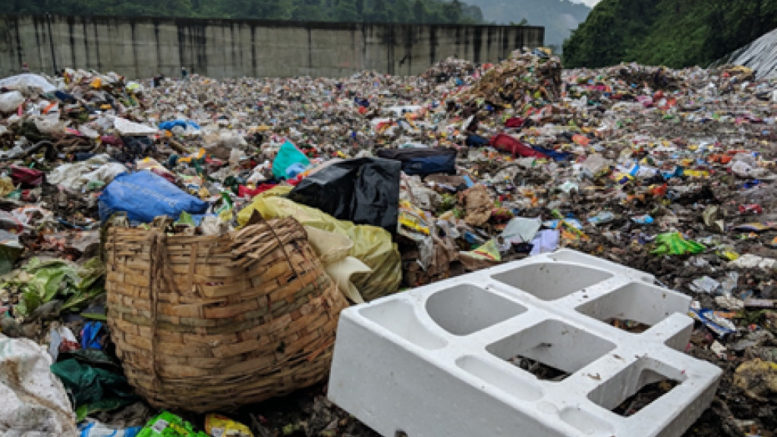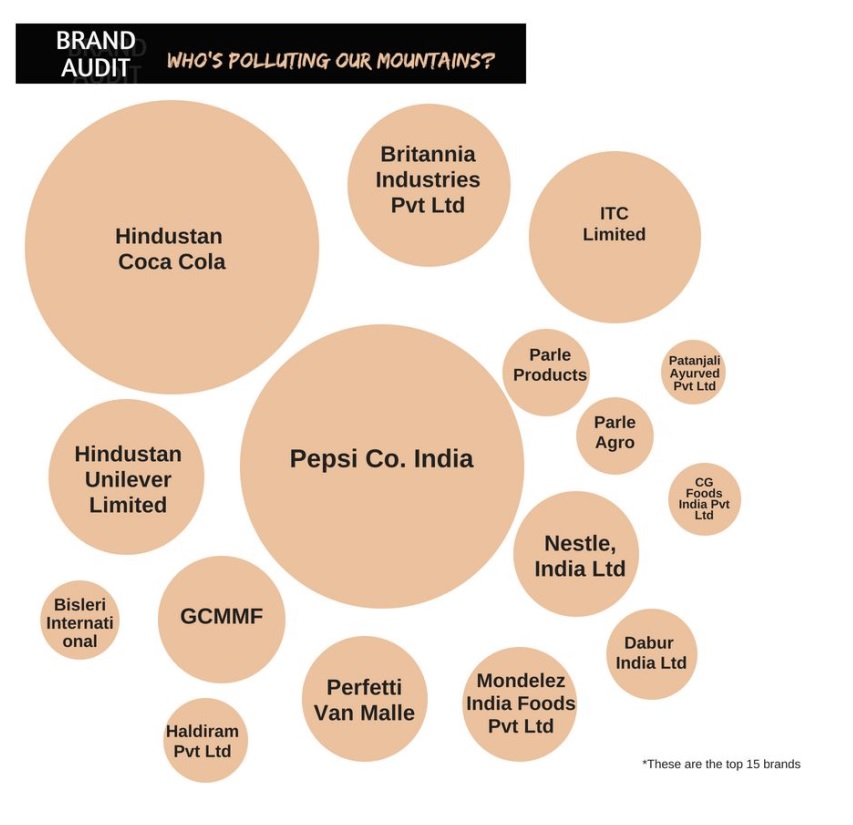During the launch of Talking Trash India, a discussion was organized on the 24th of September 2020 at Thiruvananthapuram/Gangtok with the theme, ‘Talking Trash: The corporate playbook of false solutions to the plastic crisis‘
The speakers at the event unanimously called for the plastic industry to take responsibility for their packaging waste, instead of blaming consumers. It was agreed that the Indian government must enforce stringent Extended Producer responsibility (EPR) rules to ensure that plastic producers and brand owners take back their plastic waste instead of shifting the blame to the consumers and costs to the local authorities.
A new report from The Changing Markets Foundation that reveals how, behind a veil of nice-sounding initiatives and commitments to address the plastics crisis – the plastics industry, consumer brands, and retailers have obstructed and undermined proven legislative solutions to the crisis for decades.

The report reveals how plastic producers and brand owners like Coca-Cola, Colgate-Palmolive, Danone, Mars Incorporated, Mondelēz International, Nestlé, PepsiCo, Perfetti Van Melle, Procter & Gamble, and Unilever who have a joint plastic footprint of almost 10 million tonnes per year, lobby at every level to fight against proven solutions to solve the plastics crisis, which would require them to fully step up their responsibility and take on the true costs of plastic pollution. Instead, they use distraction tactics, which are designed to make people think real change is happening or that responsibility for the problem lies elsewhere.
Nusa Urbancic, Campaigns Director at the Changing Markets Foundation, said: “This report exposes the two-faced hypocrisy of plastic polluters, which claim to be committed to solutions, but at the same time use a host of dirty tricks to ensure that they can continue pumping out cheap, disposable plastic, polluting the planet at a devastating rate. Real solutions, such as mandatory collection of packaging, policies to increase reuse and phase out certain problematic plastic types or products, rarely feature in the voluntary approach and are fiercely fought against if proposed by policy-makers.”

Plastic is pouring out into the natural world at a rate of 8 million tonnes a year, or one garbage truck per minute, and production has skyrocketed, with half of all plastics ever made having been produced since 2005. Production is expected to double again in the next 10 –15 years.
Mr. P. D. Rai, former Member of Parliament from Sikkim said :
“In the Himalayas, the plastic crisis is all-pervading despite the best efforts of the state governments and local Panchayats to ban all plastics. Extended Producer Responsibility, by which companies take back their packaging is the ultimate solution but there must be disincentives and penalties to successfully enforce such laws.”
Ms. Priyadarshinee Shrestha, Zero Waste Himalaya and Secretary of Integrated Mountain Initiative said, “The existing and proposed waste management rules are one size fits all, they do not recognise the fragility of mountains or the ecosystem services they provide. We urgently need to change the narrative from consumer behaviour to producer responsibility. Efforts taken by the corporations to reach their problematic products to remote corners should be matched by efforts to take them back or not make it at all.”
Shibu K N, India Coordinator of GAIA- Asia Pacific, said, “In India, the proposed Uniform Framework for Extended Producer Responsibility (under Plastic waste management rules, 2016) has been formulated with inputs from industry associations to protect their business interests and profits, there was no consultation whatsoever either from State governments or local governments. It is unfortunate to see there is no concrete measures to reduce the use of plastics or safe recovery of plastics.”
Talking Trash report has shown that voluntary initiatives and commitments by the industry rarely work and are in fact used across the world to undermine legislation.
For this reason, policymakers should adopt progressive legislation, built on the following key elements:
- The Plastic Waste Rules 2016 has clear and time-bound commitments on Extended Producer Responsibility (EPR) which have still not been met despite the lapse of the prescribed deadlines and directions by the National Green Tribunal. The government needs to ensure that producers/brand owners meet their obligations under the rules at the earliest.
- Develop a binding national packaging policy with timelines and targets.
- Pass legislation aimed at phasing out of harmful chemicals used in packaging plastics such as BFRs, BPAs, Phthalates, Lead etc.
- Reverse the 2018 amendment to the plastic waste management rules and reintroduce the 2-year phase-out deadline on multi-layered plastics.
- Add EPR cess to plastic packaged products to promote non-plastic alternatives and reduce tax tariff for plastic products maintaining a stipulated percentage of recycled content.
- The 2018 amendment to the plastic waste rules is a regressive step as it promotes false solutions such as mass incineration, cement kiln co-incineration and plastic roads in the guise of recycling. The government should remove these practices from the scope of recycling.
- Implement minimum recycled-content targets in the production of packaging and containers of at least 50% for beverage containers and at least 30% for other items, as a starting point. This creates a market for effective plastic recycling and maintains plastic in a closed loop without downcycling the material.
- Central or state governments should consider a tax on virgin plastic, which ensures the use of recycled plastic is incentivized over virgin plastic. This should be accompanied with a clear position on the use of alternative materials, such as bio-based, biodegradable and compostable plastic, with justifications for what is – and what is not – good use of these materials.
- Introduce bans on unnecessary or harmful plastic materials, such as PVC and polystyrene.
- Prioritise reusable alternatives and act to avoid regrettable substitutions – for example, replacing single-use plastic with other single-use materials, such as bio-based, biodegradable or compostable plastic – which do not fix pollution problems and may also lead to other environmental problems.
- Indian urban local bodies should support the Zero Waste Cities approach by creating and implementing systems that continuously intend to phase out waste – not by incinerating, landfilling or exporting it, but instead by not generating waste in the first place.
- India could spearhead the establishment of an intergovernmental negotiating committee at the United Nations Environment Assembly to negotiate a dedicated global agreement – a Convention on Plastic Pollution – that eliminates plastic discharges into the environment while also promoting a safe circular economy for plastics; one that addresses the full life cycle of plastics, from production and design to prevention and waste management.
You can download the full report of the event at https://talking-trash.com or at https://changingmarkets.org/portfolio/talking-trash/
India Case study can be downloaded here: https://talking-trash.com/case-study/india/






Be the first to comment on "Press Release: Talking Trash discussion on Plastic Waste and its Responsibility"